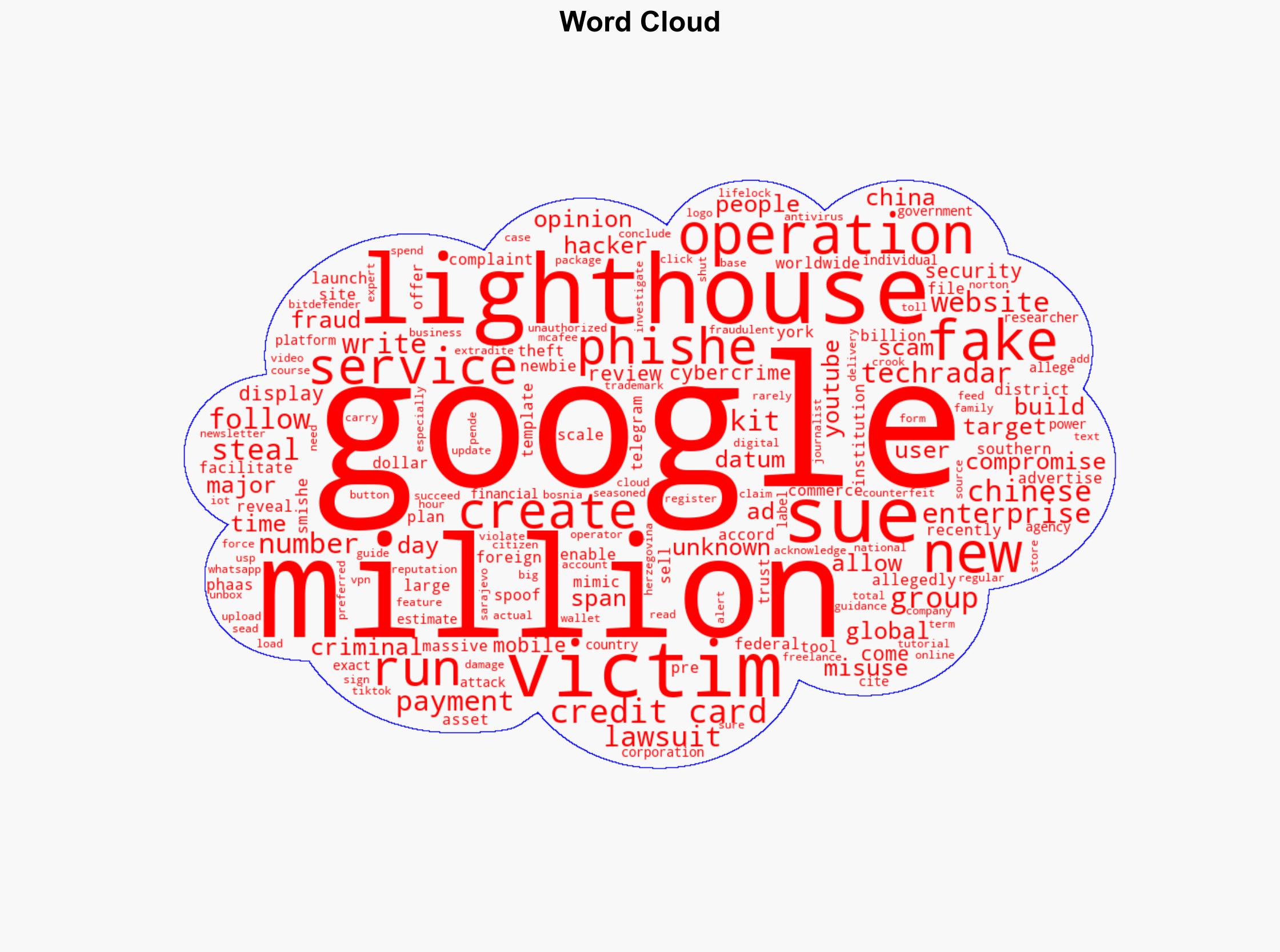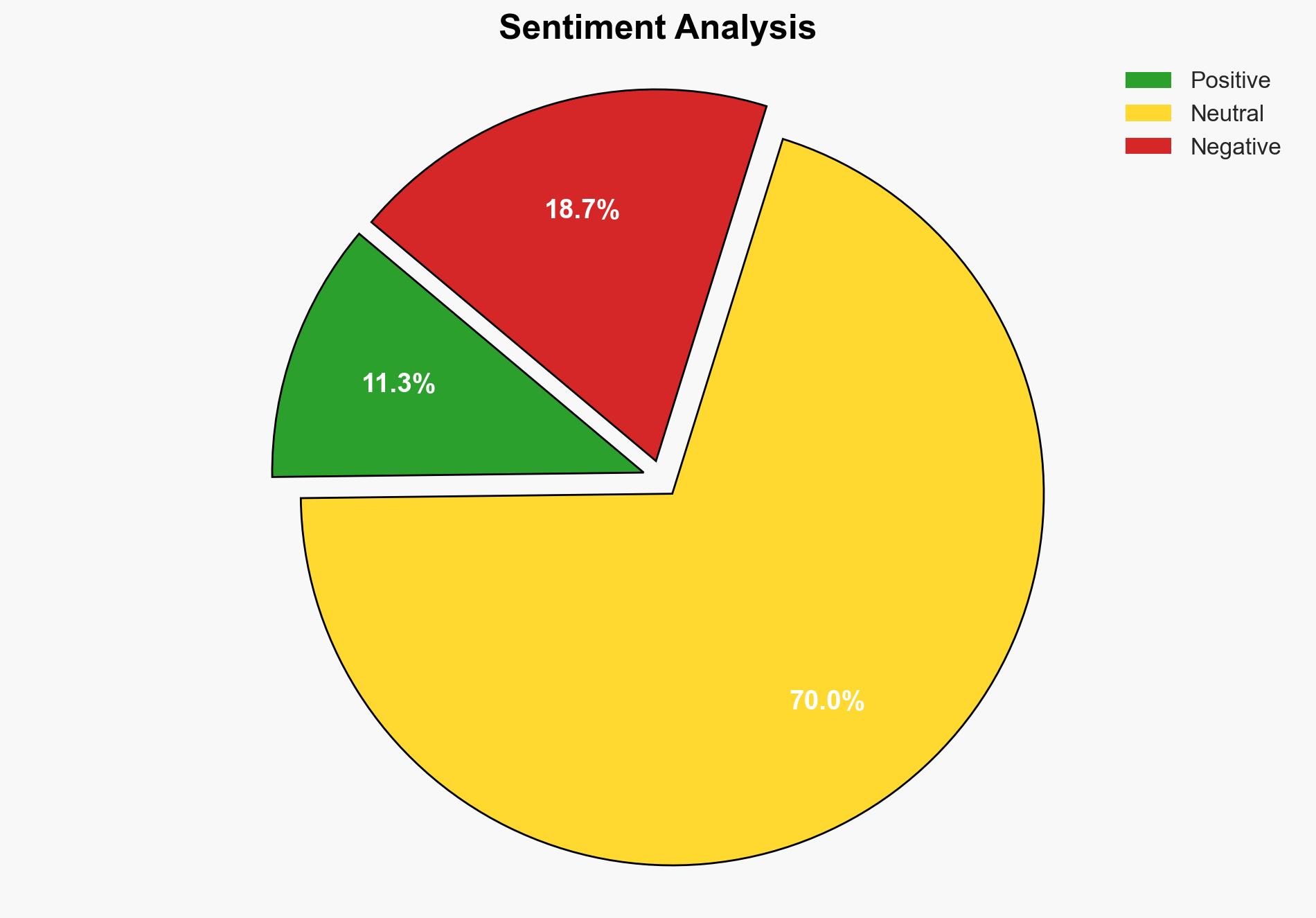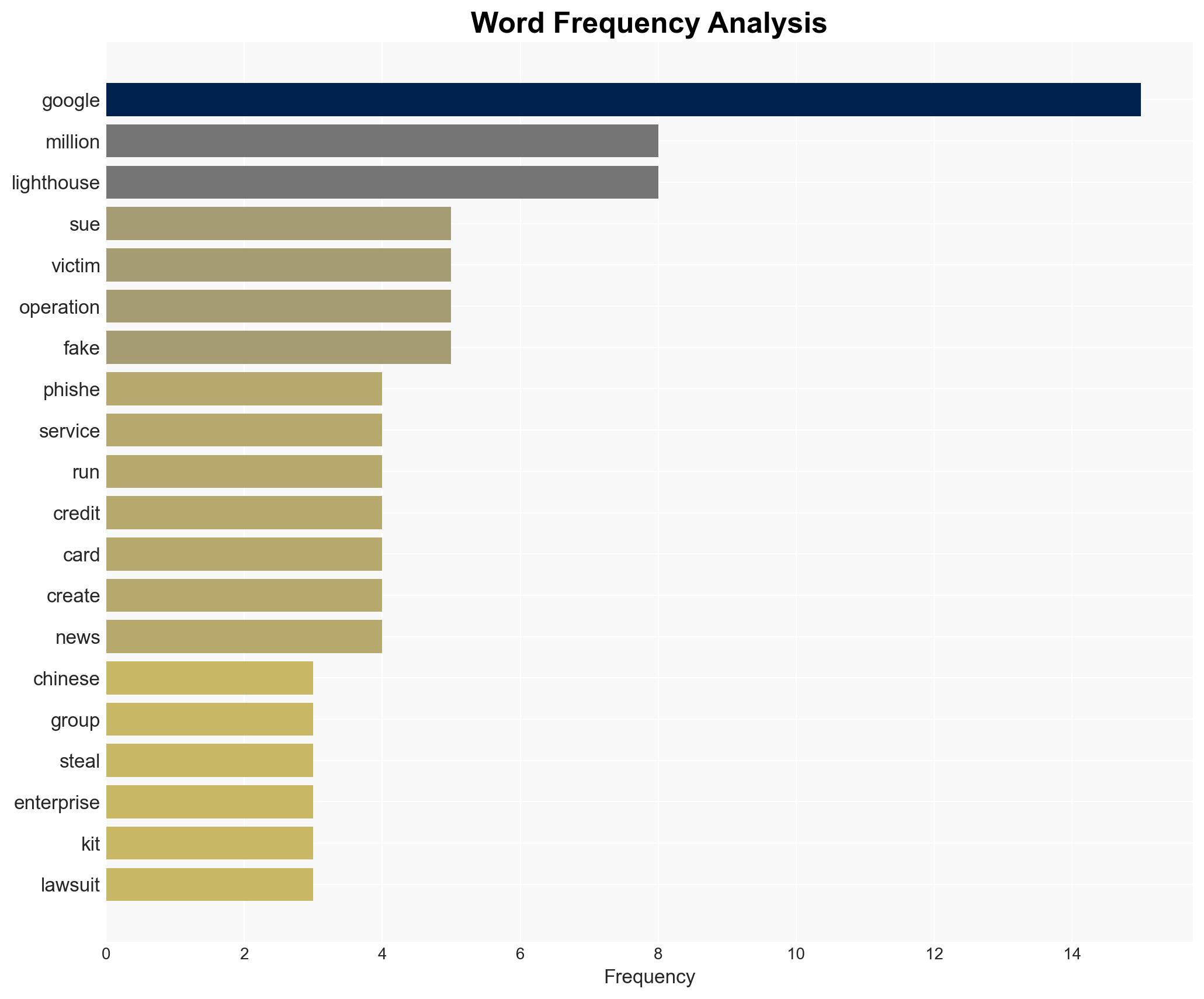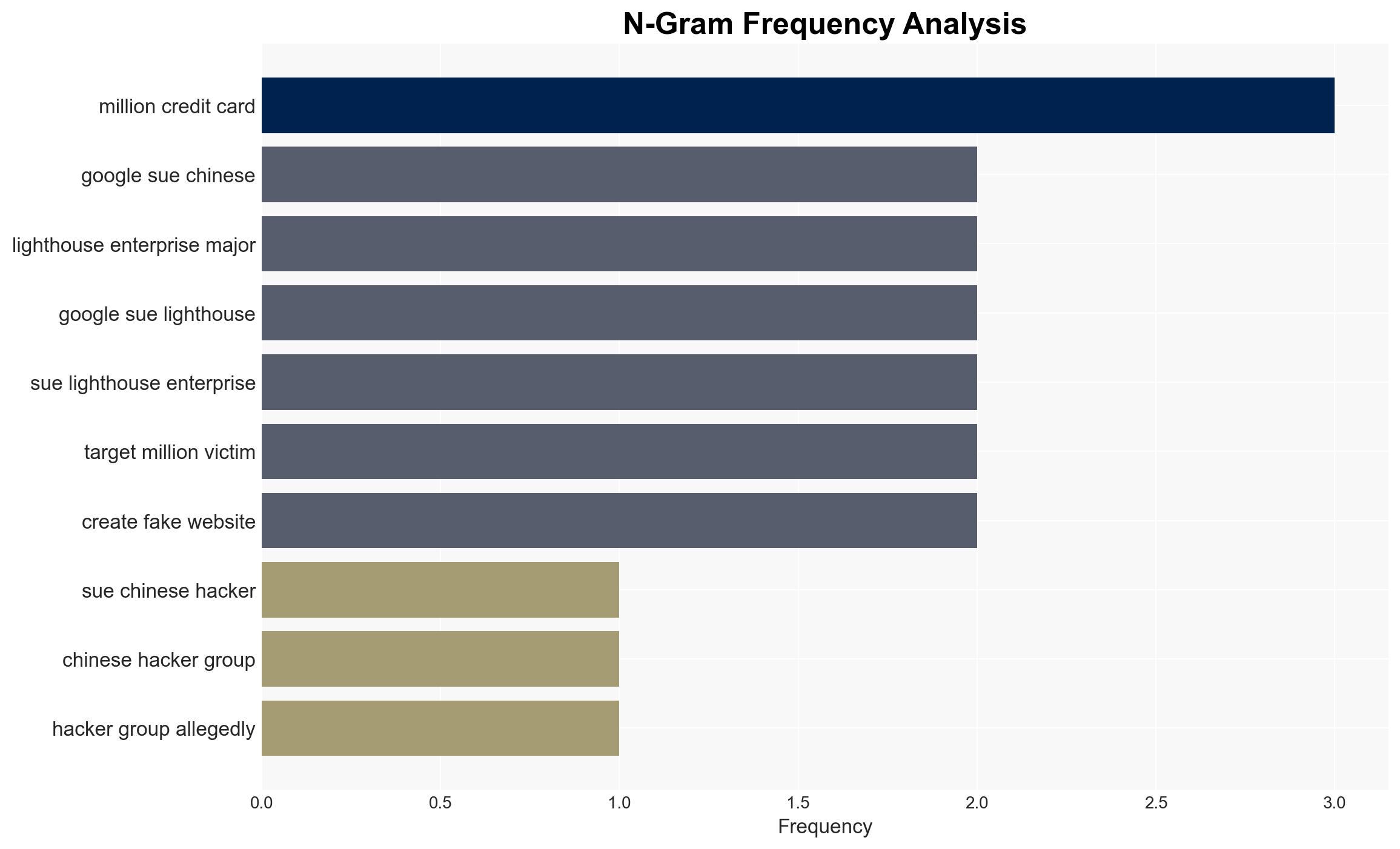Google sues Chinese hacker group which allegedly stole 1 billion from a million victims – TechRadar
Published on: 2025-11-13
AI-powered OSINT brief from verified open sources. Automated NLP signal extraction with human verification. See our Methodology and Why WorldWideWatchers.
Intelligence Report: Google sues Chinese hacker group which allegedly stole 1 billion from a million victims – TechRadar
1. BLUF (Bottom Line Up Front)
With a moderate confidence level, the most supported hypothesis is that the Lighthouse Enterprise group is a sophisticated cybercriminal operation with potential state-level tacit approval or oversight, exploiting global digital vulnerabilities for financial gain. Strategic recommendations include enhancing international cyber cooperation and reinforcing corporate cybersecurity protocols.
2. Competing Hypotheses
Hypothesis 1: Lighthouse Enterprise is an independent cybercriminal group operating without state support, driven purely by financial motives.
Hypothesis 2: Lighthouse Enterprise operates with tacit approval or oversight from Chinese state actors, leveraging cybercrime as a tool for economic disruption and intelligence gathering.
The second hypothesis is more likely due to the scale, sophistication, and geopolitical context of the operation, although direct evidence of state involvement is lacking.
3. Key Assumptions and Red Flags
Assumptions: The lawsuit’s claims are accurate and based on reliable intelligence; the group is primarily based in China.
Red Flags: Potential bias in attributing the operation to Chinese nationals without conclusive evidence; reliance on open-source intelligence which may be incomplete or misleading.
Deception Indicators: The use of sophisticated phishing kits and platforms suggests possible obfuscation of true operational leadership and intent.
4. Implications and Strategic Risks
The operation poses significant risks to global financial systems and corporate reputations. Escalation could lead to increased geopolitical tensions, particularly if state involvement is confirmed. The economic impact could be substantial, affecting consumer trust and leading to increased regulatory scrutiny on cybersecurity practices.
5. Recommendations and Outlook
- Enhance international collaboration on cybercrime investigations to improve attribution and response capabilities.
- Strengthen corporate cybersecurity measures, focusing on phishing prevention and rapid incident response.
- Best-case scenario: Successful legal action leads to the dismantling of Lighthouse Enterprise, deterring future operations.
- Worst-case scenario: Escalation of cyber attacks with potential state involvement, leading to broader geopolitical conflict.
- Most-likely scenario: Continued cybercriminal activity with intermittent disruption by law enforcement and corporate actions.
6. Key Individuals and Entities
Google: Plaintiff in the lawsuit, victim of reputational and financial damage.
Lighthouse Enterprise: Alleged cybercriminal group responsible for large-scale phishing operations.
7. Thematic Tags
Cybersecurity, Cybercrime, International Relations, Economic Security
Structured Analytic Techniques Applied
- Adversarial Threat Simulation: Model and simulate actions of cyber adversaries to anticipate vulnerabilities and improve resilience.
- Indicators Development: Detect and monitor behavioral or technical anomalies across systems for early threat detection.
- Bayesian Scenario Modeling: Quantify uncertainty and predict cyberattack pathways using probabilistic inference.
Explore more:
Cybersecurity Briefs ·
Daily Summary ·
Methodology





